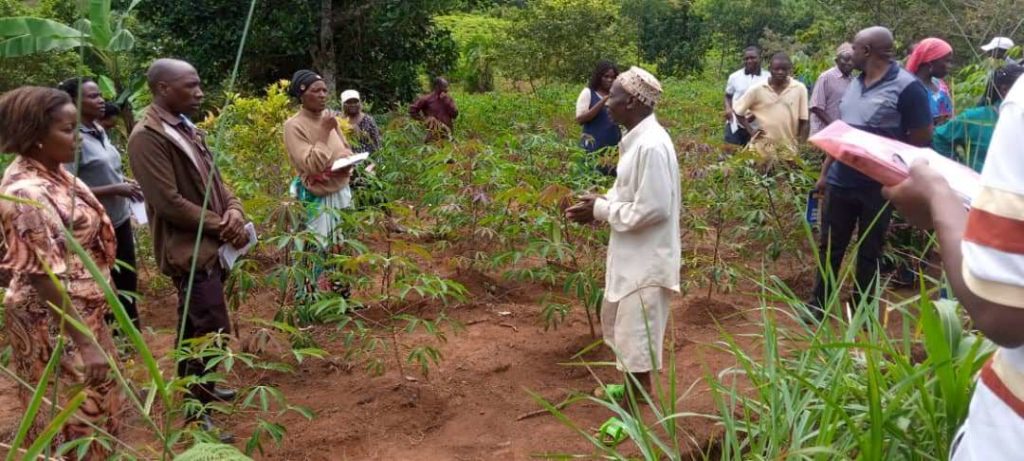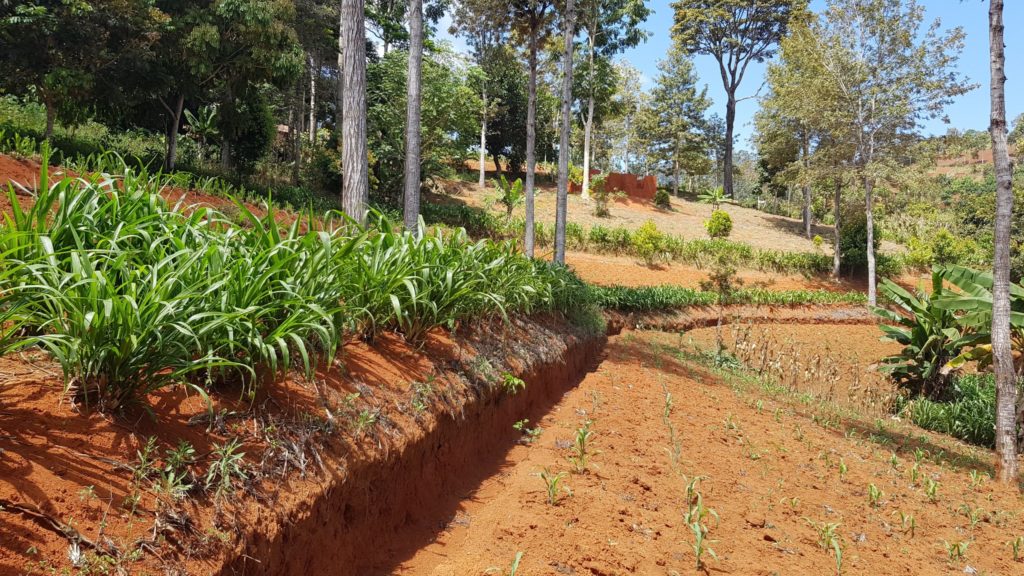As borders closed and lockdown measures were implemented around the world, a group of facilitators, farmers and government representatives embarked on a study tour across the Tanga Region of Tanzania, an area that had yet to be hit by the COVID-19 pandemic.
Held in March 2020, the tour brought together international researchers, national facilitators, government representatives and local farmers to develop shared knowledge on resilient food and agricultural systems. These learnings will be used by the Agricultural and Food Systems’ Resilience: Increasing Capacity and Advising Policy (AFRICAP) initiative – a major international programme funded by UK Research and Innovation’s Global Challenges Research Fund – to inform future policy conversations in Tanzania.
Though tour facilitators from the University of Leeds were forced to evacuate, scheduled activities carried on with little disruption thanks to AFRICAP’s network of experienced in-country team members from partner organizations. Key groups included Tanzania Climate Smart Agriculture Alliance (TCSAA) and Economic and Social Research Foundation (ESRF), as well as representatives from Muheza and Lushoto District Councils and Tanzania Agricultural Research Institute (TARI).

AFRICAP study tour enhances knowledge of agriculture and food system resilience in Tanzania
From 15-21 March, the study tour combined theoretical, practical and reflective learning methods to cover five key themes including climate risk and uncertainty; off-farm systems such as markets and livelihood diversification; on-farm production systems with a focus on technologies and practices; monitoring and evaluation; and institutions and innovation in food and agricultural systems.
In addition to presentations led by facilitators and in-country partners, the study tour also involved field visits to several villages involved with two projects – the Climate Change, Agriculture and Food Security: Climate Smart Villages project in Lushoto District, and the European Union’s Global Climate Change Alliance Eco-villages project in the Muheza District. Field visits offered hands-on learning opportunities for participants while enabling local farmers to share their perspectives on challenges and opportunities with food and agricultural systems.
Highlights from farm visits included observing Indigenous forecasting demonstrated by village elders, a practice that uses living organisms like insects, birds and animals as weather indicators; learning about soil and water conservation strategies like fanya juu (trench) and fanya chini (bench) terraces; sharing experiences with improved crop seed varieties; and attending a spice farm to see how farmers grow cardamom in home-garden agroforestry systems.

Off-farm activities included visiting a community-run butterfly farm and spice warehouse, and learning about the milk value chain from zero-grazing dairy farmers at a milk collection centre.
“The study tour made it possible for knowledge sharing among farmers and government representatives while allowing extension officers to witness climate-smart agriculture interventions implemented in other districts, insights that will help foster adoption of similar interventions in their own regions,” explains Mrs. Agatha David Kiama, study tour facilitator and intern at ESRF.
Study tour identifies important gaps to be addressed in future policy action
Aside from providing opportunities for participants to share knowledge, according to Mr. Stephano Philemon Kingazi, TCSAA National Annual Forum chairperson and tour facilitator, the activities helped identify barriers to sustainable development in the two Districts.
“On the government side, we found that extension officers are hardly aware of the existing climate smart agriculture strategies and plans developed at national levels, despite significant investments in these Districts,” he says.
“At the community level, the tour showed that many farmers have low knowledge and skills required for sustainable agribusiness development. Most farmers also have limited knowledge of monitoring and evaluation, areas that are critical to developing resilient food systems.”
Potential solutions may include establishing climate smart agriculture learning alliances at the District level that bring stakeholders together to discuss climate change, agriculture and food systems, as well as engaging youth in future research and agricultural development programmes, says Mrs. Shakwaanande Roland Natai, National Coordinator for TCSAA and tour facilitator.
Mr. Sylvester Mziray, study tour facilitator and Land Use Planning Officer from the Muheza District Council, adds that building capacity among participants and sharing knowledge was instrumental for future policy development, not only in the mountain region, but across Tanzania.
“The study tour generated understanding and built capacity of different stakeholders from the community level to the national level regarding viable ways to undertake suitable climate-smart agriculture activities,” he says. “This work will be instrumental in supporting the implementation of national development plans.”
